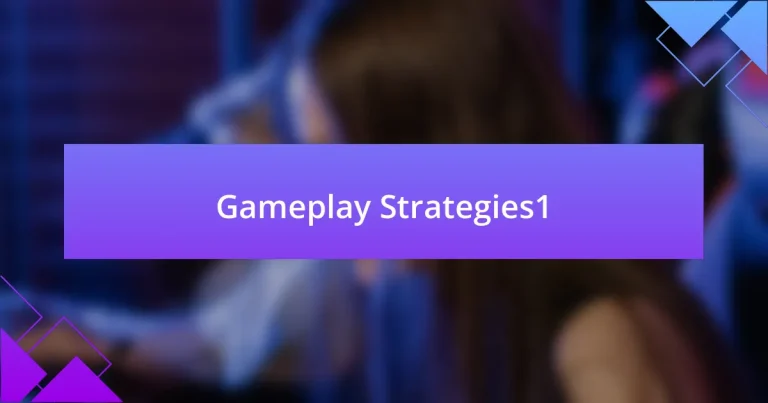Optimal champion picks for climbing ranked solo queue in League of Legends include champions such as Lee Sin, Thresh, and Kai’Sa, known for their mobility, utility, and damage output. The article explores how champion selection influences team composition, individual matchups, and overall win rates, emphasizing the importance of synergy and current meta trends. It also discusses the role of individual skill and familiarity with champions in achieving success, as well as strategies for counter-picking based on enemy strengths. Key champion types highlighted include high-damage assassins, tanky frontliners, and utility supports, providing insights into effective champion choices for players aiming to improve their ranked performance.

What are Optimal Champion Picks for Climbing Ranked Solo Queue?
Optimal champion picks for climbing ranked solo queue include champions like Lee Sin, Thresh, and Kai’Sa. Lee Sin is favored for his mobility and playmaking potential, allowing players to influence the game significantly. Thresh provides utility and crowd control, making him a strong support choice that can turn fights. Kai’Sa offers high damage output and versatility, adapting well to various team compositions. These champions are consistently effective in solo queue due to their ability to carry games and impact the outcome through individual skill and decision-making.
How do champion picks influence climbing in ranked solo queue?
Champion picks significantly influence climbing in ranked solo queue by determining the overall team composition and individual matchups. A well-chosen champion can exploit enemy weaknesses, secure objectives, and provide utility, leading to higher win rates. For instance, data from League of Legends shows that champions with strong early-game presence, such as Lee Sin or Elise, can snowball leads and impact the game positively, resulting in a 55% win rate or higher in certain ranks. Additionally, meta champions, which are frequently picked and banned, often have higher success rates due to their effectiveness in the current game environment, further emphasizing the importance of strategic champion selection for climbing.
What factors determine the effectiveness of a champion in ranked play?
The effectiveness of a champion in ranked play is determined by several key factors, including champion mechanics, synergy with team composition, and the current meta. Champion mechanics refer to the skill ceiling and ease of use, which can influence a player’s ability to execute strategies effectively. Synergy with team composition is crucial, as champions that complement each other can create stronger team dynamics and increase overall performance. The current meta, which reflects the most effective strategies and champion picks at a given time, also plays a significant role; champions that are favored in the meta often have higher win rates and are more effective in ranked play.
How does champion synergy impact overall team performance?
Champion synergy significantly enhances overall team performance by ensuring that champions complement each other’s abilities and strategies. When champions are synergistic, they can execute coordinated strategies more effectively, leading to higher win rates. For example, a combination of champions that can crowd control and deal burst damage, such as Leona and Zed, allows for quick eliminations of opponents, which can shift the momentum of a game. Studies have shown that teams with high synergy often achieve better communication and coordination, resulting in improved objective control and team fights, ultimately leading to a greater likelihood of victory in ranked matches.
Why is it important to choose the right champion for solo queue?
Choosing the right champion for solo queue is crucial because it directly influences a player’s ability to win games and climb ranks. The champion selection affects team composition, synergy, and individual performance, which are all vital for achieving victory in a competitive environment. For instance, selecting a champion that counters the enemy team’s composition can provide a strategic advantage, while picking a champion that aligns with one’s own strengths can enhance personal effectiveness. Statistics show that players who consistently choose champions that fit their playstyle and the current meta have higher win rates, reinforcing the importance of informed champion selection in solo queue.
What role does individual skill play in champion selection?
Individual skill significantly influences champion selection in competitive gaming, particularly in ranked solo queue. Players with higher individual skill can effectively utilize champions that may require advanced mechanics or strategic understanding, allowing them to maximize their impact on the game. For instance, a player skilled in executing complex combos can select champions like Zed or Riven, who thrive on mechanical proficiency, thereby increasing their chances of success. Conversely, players with lower skill levels may benefit from selecting champions that are easier to play, such as Garen or Ashe, which can lead to more consistent performance. This relationship between skill and champion choice is supported by data showing that players who select champions aligned with their skill level tend to achieve better win rates, as evidenced by various statistical analyses in gaming communities.
How can champion familiarity affect win rates in solo queue?
Champion familiarity significantly increases win rates in solo queue by enabling players to utilize their champions’ abilities and mechanics more effectively. Players who are well-acquainted with their chosen champions can make quicker, more informed decisions during gameplay, leading to better positioning, skill usage, and overall strategic execution. Research indicates that players who consistently use a limited pool of champions tend to achieve higher win rates, as they can leverage their experience to anticipate enemy actions and optimize their own gameplay. For instance, a study by the League of Legends data analysis site OP.GG found that players with a high mastery level on their champions had win rates exceeding 55%, compared to lower mastery players, demonstrating the direct correlation between familiarity and performance.

What are the Best Champion Types for Climbing Ranked Solo Queue?
The best champion types for climbing ranked solo queue are high-damage assassins, tanky frontline champions, and utility support champions. High-damage assassins, such as Zed and Kha’Zix, can quickly eliminate key targets, creating advantages in skirmishes. Tanky frontline champions like Malphite and Leona absorb damage and initiate fights, providing stability for their team. Utility support champions, such as Lulu and Janna, enhance their teammates’ effectiveness and provide crucial crowd control. These champion types are effective because they can significantly influence the outcome of games, as evidenced by their frequent selection in high-elo play and their ability to secure objectives and team fights.
Which champion classes are most effective in solo queue?
The most effective champion classes in solo queue are assassins and fighters. Assassins excel at quickly eliminating key targets, which can swing the momentum of a game, while fighters provide sustained damage and durability, allowing them to engage in skirmishes effectively. Statistics from various ranked games indicate that champions like Zed and Riven, who fall into these classes, consistently achieve higher win rates in solo queue due to their ability to carry games and influence outcomes through individual skill.
What advantages do tanks provide in ranked solo queue?
Tanks provide significant advantages in ranked solo queue by absorbing damage and initiating fights, which enhances team survivability and control. Their high durability allows them to withstand enemy attacks, making them essential for protecting squishier teammates and creating opportunities for engagements. Additionally, tanks often possess crowd control abilities that can disrupt enemy formations and secure kills, leading to advantageous team fights. This role is crucial in solo queue, where coordination may be lacking, as tanks can dictate the pace of the game and provide a frontline that enables their team to execute strategies effectively.
How do assassins excel in climbing the ranks?
Assassins excel in climbing the ranks by leveraging their high burst damage and mobility to secure quick kills, which can significantly impact the outcome of games. Their ability to eliminate key targets, such as carries or support champions, allows them to create advantages for their team, often leading to objectives like towers or dragons. Additionally, assassins typically possess skills that enable them to escape dangerous situations, allowing them to maintain a favorable kill-death ratio, which is crucial for ranking up. This effectiveness is supported by statistics showing that champions classified as assassins often have higher win rates in solo queue, particularly when players utilize their strengths in ambush tactics and map control.
What are the current meta champions for climbing ranked solo queue?
The current meta champions for climbing ranked solo queue include champions like Zed, Kai’Sa, and Thresh. These champions are favored due to their high carry potential and versatility in various matchups. Zed excels in burst damage and mobility, making him a strong pick for assassins. Kai’Sa offers a mix of damage and utility, allowing her to adapt to different team compositions. Thresh provides crowd control and playmaking opportunities, which are crucial for gaining an advantage in solo queue. Their effectiveness is supported by recent win rate statistics and player performance data, indicating their dominance in the current ranked environment.
How can players identify meta champions for their role?
Players can identify meta champions for their role by analyzing current patch notes, professional play, and community tier lists. Patch notes provide insights into balance changes that affect champion viability, while professional play showcases which champions are favored in high-level competition. Community tier lists, often compiled from player statistics and win rates, reflect the champions that are performing well in ranked games. For example, websites like OP.GG and U.GG aggregate data from millions of games to highlight champions with high win rates and pick rates in specific roles, helping players make informed decisions about which champions to prioritize.
What resources are available to track champion performance in the meta?
Resources available to track champion performance in the meta include websites like OP.GG, U.GG, and League of Graphs. These platforms provide real-time statistics, win rates, pick rates, and performance metrics for champions across various ranks and regions. For example, OP.GG aggregates data from millions of games, allowing players to analyze trends and make informed decisions about champion selection based on current meta performance.

How to Choose the Right Champion for Your Playstyle?
To choose the right champion for your playstyle, first assess your preferred role and gameplay preferences, such as aggression, support, or utility. Understanding whether you excel in dealing damage, controlling the map, or providing assistance to teammates is crucial. For instance, if you enjoy aggressive play, champions like Zed or Riven may suit you, while if you prefer a supportive role, champions like Janna or Lulu would be more appropriate.
Additionally, consider the current meta and champion strengths, as certain champions may perform better in the current game environment. For example, if tanky champions are dominating the meta, selecting a champion like Malphite or Leona can provide a strategic advantage.
Finally, practice with a few champions to determine which ones feel most comfortable and effective for you, as familiarity can significantly enhance your performance in ranked solo queue.
What factors should players consider when selecting a champion?
Players should consider champion role, synergy with team composition, individual skill level, and current meta when selecting a champion. The role determines the champion’s primary function in the game, such as tank, damage dealer, or support. Synergy with team composition ensures that the selected champion complements the strengths and weaknesses of other champions on the team, enhancing overall effectiveness. Individual skill level is crucial, as players should choose champions they are comfortable with and can execute effectively, which increases their chances of success. Lastly, the current meta reflects the champions that are performing well in the competitive scene, often influenced by balance changes and player trends, making it essential for players to stay updated on which champions are strong at any given time.
How does playstyle influence champion effectiveness?
Playstyle significantly influences champion effectiveness by determining how well a player can utilize a champion’s strengths and mitigate weaknesses. For instance, aggressive playstyles may enhance the effectiveness of champions with high burst damage or crowd control, allowing them to secure kills and objectives more efficiently. Conversely, a defensive playstyle may benefit champions with strong sustain or utility, enabling them to survive longer in fights and support teammates effectively.
Statistical analysis from various ranked games shows that players who align their champion choices with their preferred playstyle tend to achieve higher win rates. For example, a study by Riot Games found that players who select champions that complement their aggressive tendencies, such as Zed or Riven, often perform better in high-pressure situations compared to those who choose champions that do not match their playstyle. This alignment between playstyle and champion selection is crucial for maximizing overall effectiveness in ranked solo queue.
What are the key attributes to look for in a champion based on personal strengths?
The key attributes to look for in a champion based on personal strengths include adaptability, mechanical skill, and game knowledge. Adaptability allows a champion to perform well in various situations and against different opponents, which is crucial for climbing in ranked solo queue. Mechanical skill refers to the player’s ability to execute champion abilities effectively, impacting their performance in fights and objectives. Game knowledge encompasses understanding map awareness, timing, and strategy, which enhances decision-making during matches. These attributes collectively contribute to a player’s success in ranked solo queue, as they enable effective responses to dynamic game scenarios.
How can players adapt their champion picks based on the enemy team composition?
Players can adapt their champion picks based on the enemy team composition by analyzing the strengths and weaknesses of the opposing champions and selecting champions that counter them effectively. For instance, if the enemy team has a high amount of crowd control, players might choose champions with mobility or cleanse abilities to mitigate that threat. Additionally, if the enemy team lacks tankiness, players can opt for high-damage champions to exploit that vulnerability. This strategic selection is supported by the concept of counter-picking, which is a fundamental aspect of competitive play, allowing players to gain an advantage by choosing champions that directly counter the enemy’s choices.
What strategies can be employed to counter specific champion picks?
To counter specific champion picks, players can employ strategies such as selecting champions with inherent advantages against the target champion, utilizing crowd control to neutralize their strengths, and adapting item builds to mitigate their damage output. For instance, if facing a high burst damage champion like Zed, picking champions with strong crowd control, such as Lissandra, can effectively counter his engage and burst potential. Additionally, building items like Zhonya’s Hourglass can provide a crucial defensive mechanism against Zed’s ultimate, allowing players to survive his all-in attempts. These strategies are validated by the understanding of champion matchups and itemization that is critical in competitive play, as players often analyze win rates and matchup statistics to inform their choices.
How does understanding enemy strengths help in champion selection?
Understanding enemy strengths is crucial in champion selection as it allows players to choose champions that can effectively counter the opposing team’s composition. By analyzing the enemy’s strengths, such as their damage output, crowd control, and mobility, players can select champions that exploit weaknesses or provide necessary utility. For instance, if the enemy team has high burst damage, selecting a tanky champion can mitigate that threat, while a champion with crowd control can disrupt their strategy. This strategic approach enhances the likelihood of winning by ensuring that the selected champions align with the team’s overall strategy and can effectively respond to the enemy’s capabilities.
What are some practical tips for optimizing champion picks in ranked solo queue?
To optimize champion picks in ranked solo queue, players should focus on selecting champions that complement their team’s composition and counter the enemy’s picks. Prioritizing champions with strong win rates in the current meta, such as those identified in statistical analyses from sources like OP.GG or U.GG, can significantly enhance chances of victory. Additionally, understanding personal strengths and weaknesses with specific champions allows players to choose those they are most skilled at, further increasing effectiveness in matches. Lastly, adapting picks based on the roles and champions already selected by teammates ensures a balanced team composition, which is crucial for success in solo queue environments.















